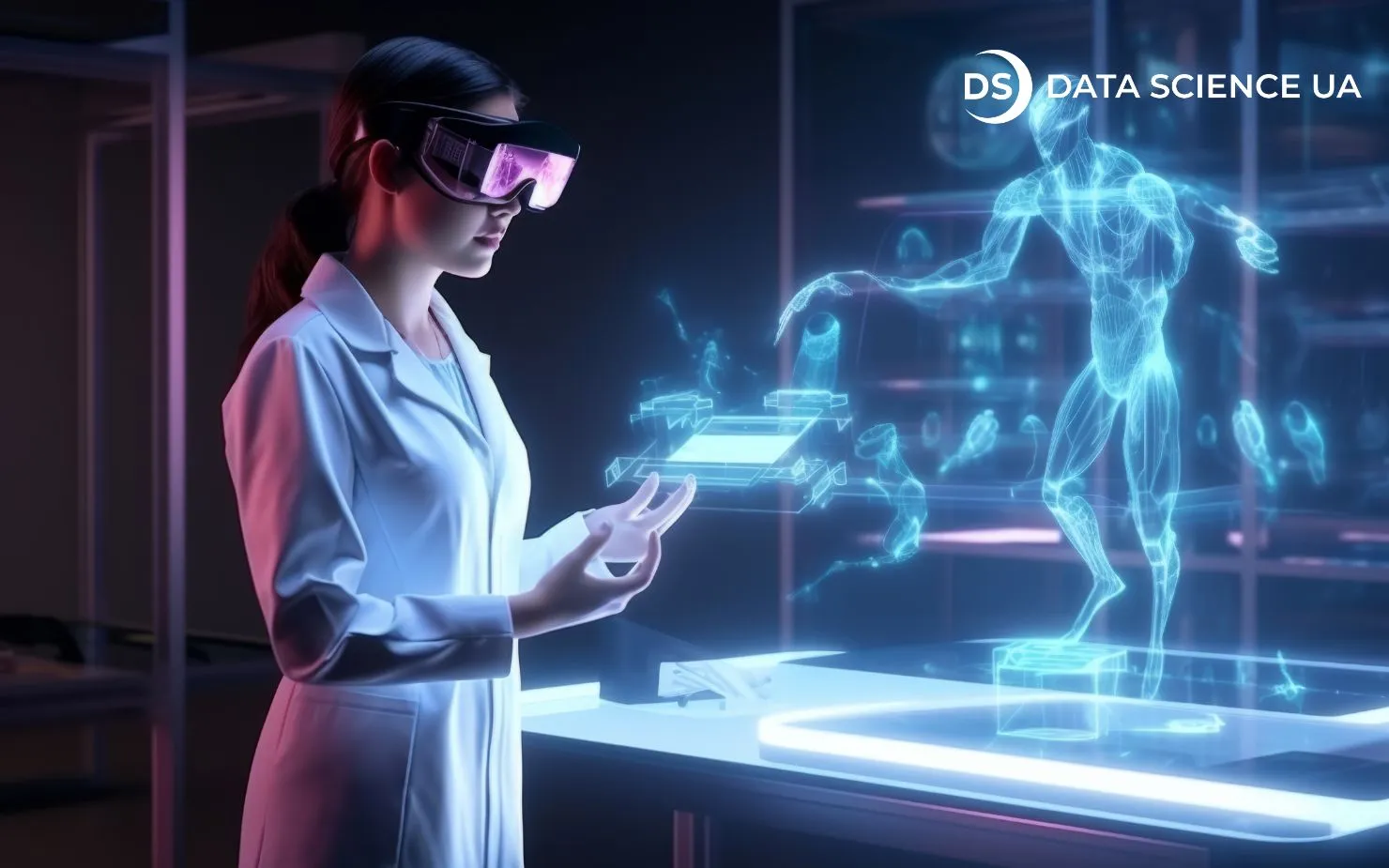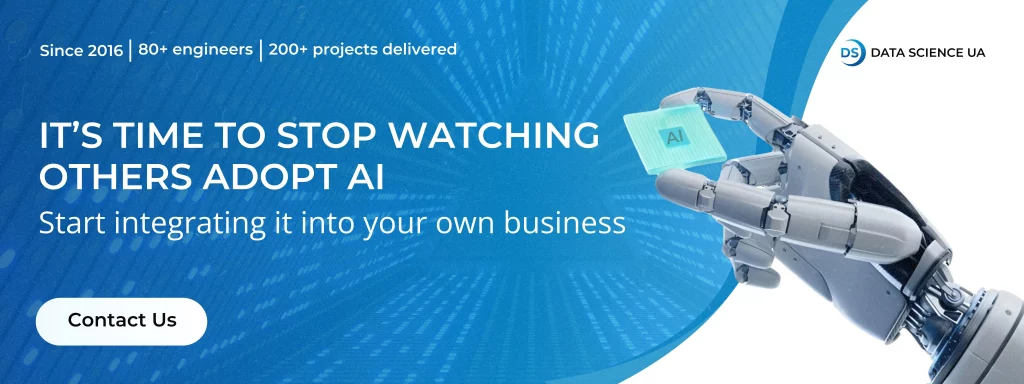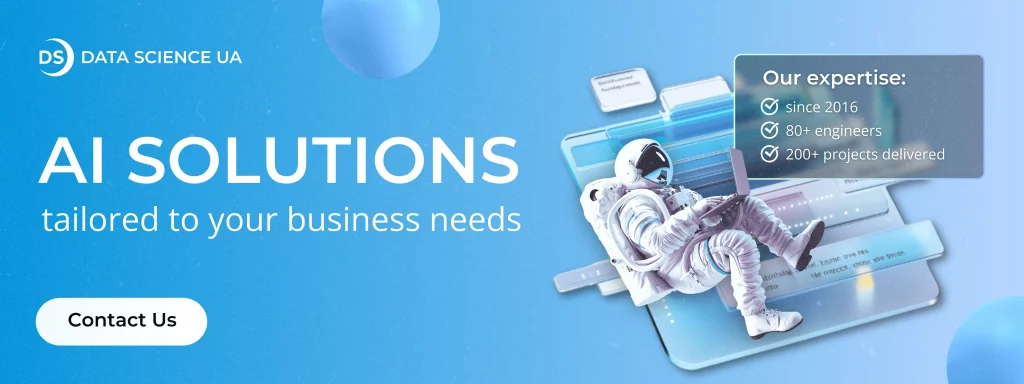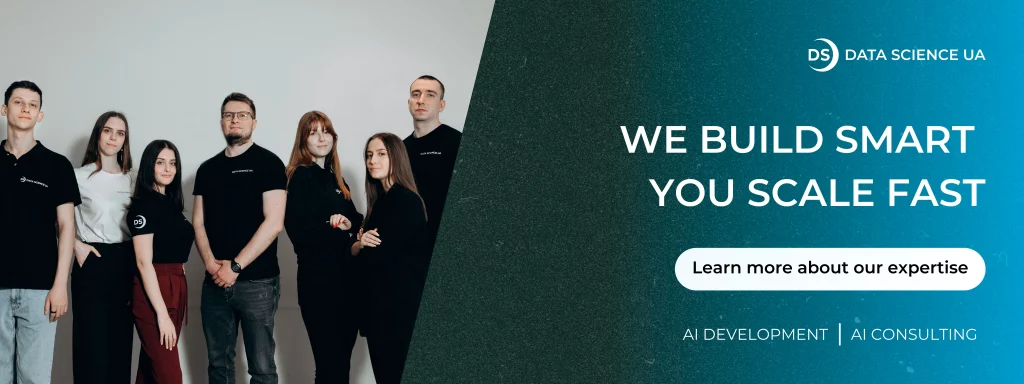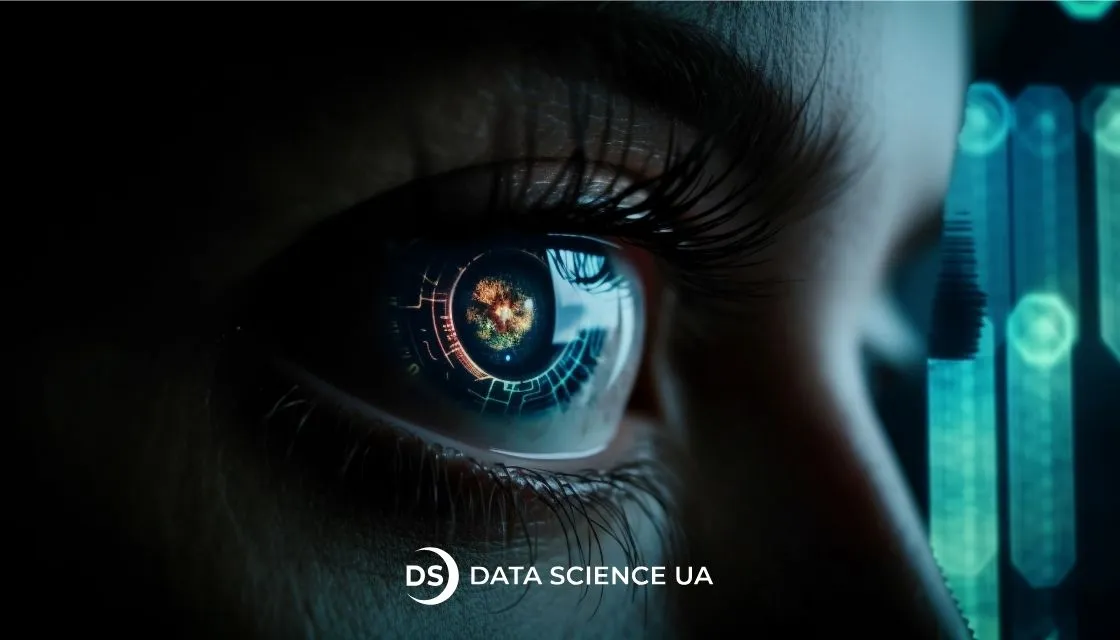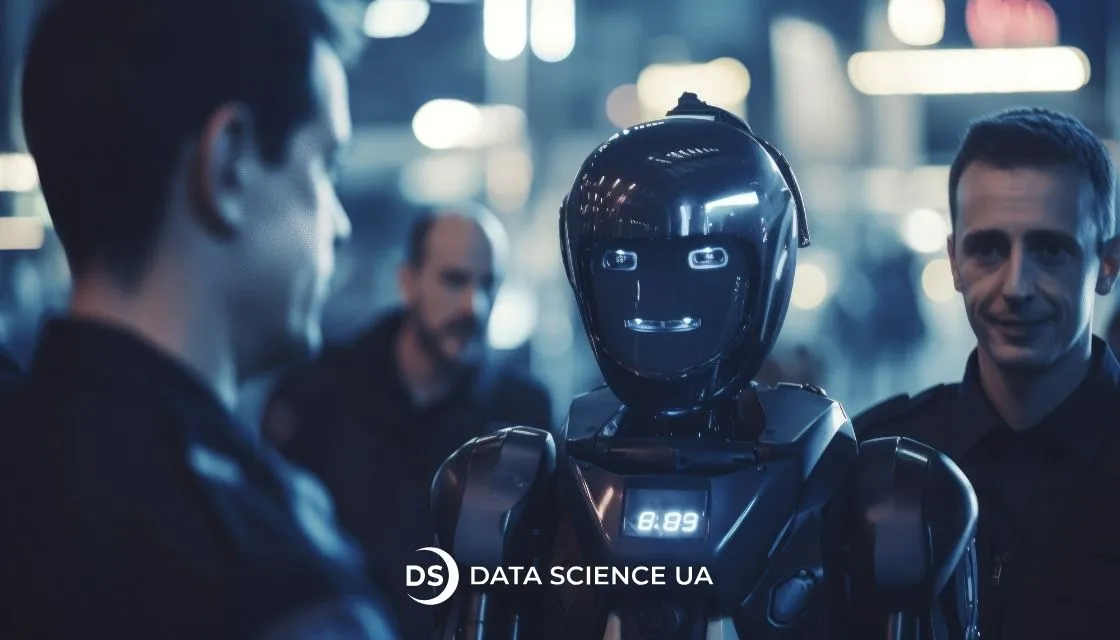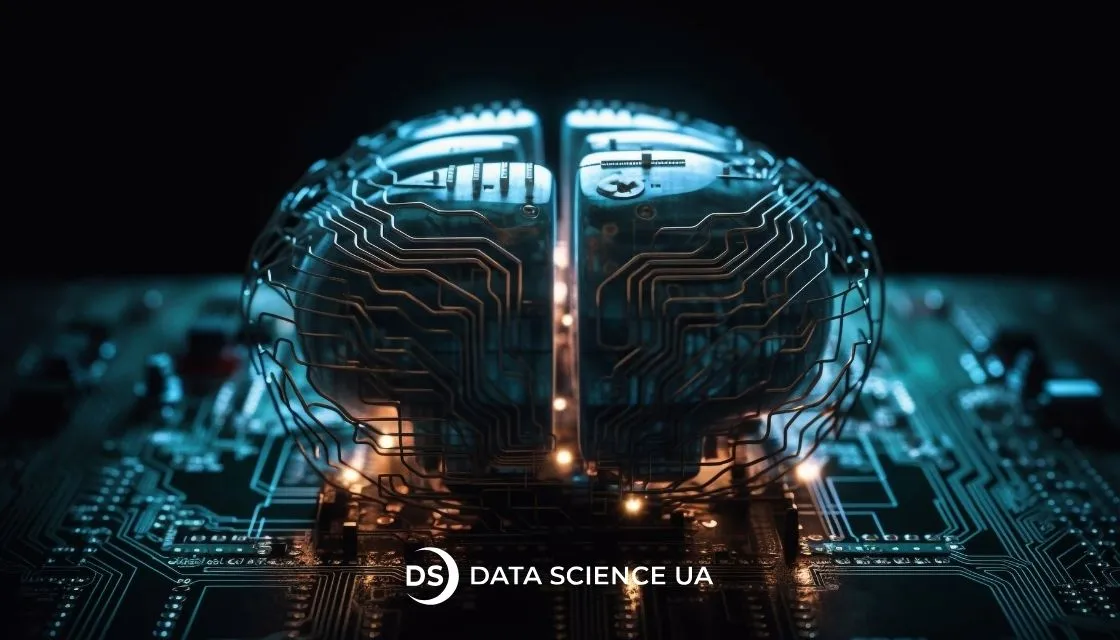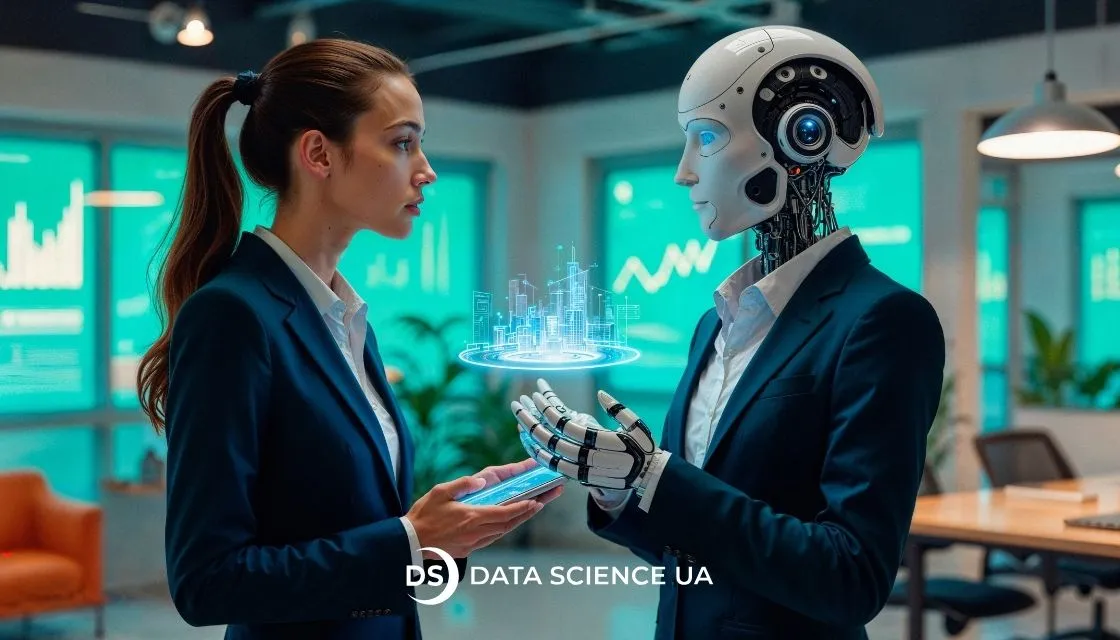AI agents in healthcare: Advantages & applications
In a Boston emergency room, a nurse manually records the vitals of five patients after a night shift. In another ward, an intern is wasting her third hour in the EHR system, trying to sort out the documentation for the insurance company. At the same time, in the laboratory of an American medical startup, an autonomous AI agent checks thousands of test results without pauses or errors, prepares reports, updates medical records, and tells doctors what data is missing to make a decision.
This is not an imaginary scenario. Some hospitals in the US, Germany, and Singapore are already working this way. AI agents in medicine are no longer a concept. So, is it necessary to implement AI agents in medicine today? Today’s article will give you the answer you’re looking for!
What are AI agents?
AI agents in healthcare aren’t just chatbots or smart modules. It is an autonomous software unit built to fulfill a variety of functions: process requests, search for necessary data, make basic decisions, and communicate with other systems or agents. Conventional AI systems need constant, clear instructions for each step. The agents, on the other hand, act independently.
In the context of healthcare, this means not just responding to a doctor’s request, but understanding its essence, extracting the necessary information from patient data, comparing it with medical protocols, and generating a specific result, such as the risk of complications or the need to schedule additional examinations.
Our AI agent development company helps businesses develop agent systems fully aligned with industry requirements and real-world conditions, prioritizing data privacy and scalability.
What is the role of AI agents in healthcare?
In healthcare facilities, the majority of processes still rely on human effort: from record-keeping to patient coordination. And even with modern CRMs, electronic health records, and HL7 integration, staff workload is not getting any less. Instead of focusing on treatment, professionals waste their time on updating forms, making calls, and monitoring updates manually.
A common scenario: a patient didn’t make it to their appointment on time. Instead of making 3 calls and wasting at least 15 minutes on resolving the issue, an administrative manager simply launches an AI agent. It automatically checks the database, synchronizes updates with other departments, reschedules an appointment, and sends out a reminder to the patient. All in a matter of minutes and with no human intervention whatsoever!
There are thousands of such tasks on a clinical scale. And this is where the need arises not for another software, but for a digital ‘colleague’ who can’t be overloaded with work (almost) and doesn’t forget about the little things.
It’s time to implement AI in your business!
How are AI agents implemented in healthcare?
Most implementations don’t start with global systems but with point cases. For example:
- In a clinic call center, an agent takes care of 60-70% of typical queries (appointment, transfer, prescription).
- In a medical insurance company, an AI agent checks the completeness of documents and compliance with policy terms and conditions without burdening the team.
- In the laboratory, it checks protocols, compares results with previous analyses, and generates explanations for the doctor.
- In cancer centers, it analyzes case histories and genetic profiles, suggesting potential treatment combinations.
Important: The agent is not built ‘once and for all’. It learns from the clinic’s data, adapts to specific processes, and can gradually take on more tasks as the team’s confidence grows.
How are AI agents reshaping healthcare?
Healthcare has long been an industry where any changes were slow. But AI agents are finally making a change, transforming workflows gradually with no stress for teams. This process indeed needs time, as it’s not just another basic tool to learn. It’s a comprehensive assistant that works alongside human professionals, takes over part of the routine, and allows staff to focus on the main thing – helping the patient.
In the long run, it means more than just convenience. This is a new level of medical care quality. Where it used to take hours, it now takes just a few minutes. Where there was a risk of ‘losing a patient’ due to the human factor, now there is a system that keeps everything under control.
Key benefits of AI agents in healthcare
Healthcare AI agents don’t replace doctors, but they significantly reduce the workload, cut the time spent on routine tasks, and make the medical research more accurate. Clinics across Europe and the US are entering a new age with AI in healthcare – below are just a few examples that demonstrate the incredible progress being made.
Best AI agents for healthcare as digital assistants
In the UK, the National Health Service (NHS) tested Kheiron Medical, a system that helps radiologists diagnose breast cancer. The crucial part of this solution – an AI agent that processes images and highlights potential abnormalities that a doctor might miss due to fatigue or lack of time. In some clinics, such a system has already become a regular part of the appointment, working not as a substitute but as an effective instrument for medical professionals.
In the US, Aidoc has integrated AI agent solutions into X-ray departments. Their agent signals critical conditions such as stroke, internal bleeding, and blood clots in real-time. As a result, several hospitals have reduced the response time to dangerous conditions from hours to minutes.
Financial efficiency without sacrificing quality
Zocdoc, a US-based doctor search and appointment service, has automated the request processing using AI agents healthcare. They recognize user intentions, clarify symptoms, and immediately suggest a relevant specialist. This reduced the call center workload and cut the response time by 70%.
In Israel, the Maccabi Healthcare network uses AI agents to manage queues and redirect requests – the system processes more than 10,000 requests daily without staff involvement. The savings are over $5 million annually.
AI agents in healthcare 2025 + diagnostics: When speed matters
Tempus, an American company working with cancer patients, has created an AI system for analysing genomic data. The agent reviews mutations, compares them with drug databases, and offers personalized treatment options. In cases of breast cancer, such recommendations have reduced decision-making time from 2 weeks to 48 hours.
PathAI has developed an agent that analyses biopsies. In one of the Boston clinics, the diagnostic accuracy increased by 12%, and repeat consultations decreased by 30%.
How an agent sees a patient better than Excel
Singapore’s NUHS clinic uses AI agents for healthcare to track the condition of inpatients. If a patient develops new symptoms, heart rate, or temperature changes, the agent automatically alerts a doctor or nurse. This is especially important for intensive care units, where even a minute counts.
In France, Cegedim has introduced an agent system for managing chronic patients. It reminds patients of appointments, checks readings from wearable devices, and alerts them to deviations. The result is a 22% reduction in hospital admissions among diabetics.
Pharma: AI accelerates what usually takes years
Insilico Medicine (Hong Kong/USA) uses healthcare AI agent network to select molecules with the potential to be turned into drugs. In 2023, their AI-generated candidate entered clinical trials just 18 months after launch, whereas the traditional cycle takes 3-5 years.
Recursion Pharmaceuticals is building a model where agents predict how different molecules interact with cells in disease conditions. It has reduced the number of blind experiments by 40% and accelerated the development pipeline.
Access to medicine where there are no doctors
As part of the Apollo TeleHealth initiative in India, more than 600 rural clinics have been equipped with triage AI agents. The patient describes the symptoms, and the system decides whether a remote consultation is enough or whether they need to be referred to a doctor. More than 50,000 people go through the system every month.
In Kenya, the Ada Health project allows residents to describe their condition over the phone, get a basic assessment, and, if necessary, be referred to the nearest clinic. The involvement of a doctor is minimal but critical – AI filters up to 70% of requests as non-urgent.
Core components of AI agents in healthcare
The AI agent is based on machine learning, which allows the model to learn from historical medical data. Next comes NLP, which helps the agent work with unstructured records and communicate with a patient or doctor. Image recognition is used for analyzing images, from X-rays to MRIs. And all of this is integrated with the back-office and clinical systems of the medical institution: EMR, CRM, and PACS.
The point of the agent is not to give one correct answer, but to take over some of the thinking: combine data, check the context, detect anomalies, and pass on the correct action to a nurse, doctor, administrator, or patient.
Contact us to learn more about AI!
Key use cases of AI agents in healthcare
Diagnostic support and medical imaging
It all starts with an image. MRI, CT, mammography – today, AI powered healthcare agents can promptly spot even minor deviations – something that would take a human specialist a couple of minutes of rigorous analysis. In the US, Zebra Medical Vision works with more than 1 million images per month, automatically detecting signs of fractures, calcifications, and tumours.
Such agents do not make a diagnosis, but they cut off dozens of ‘obvious’ cases and signal non-obvious ones, which significantly reduces the workload of radiologists and increases accuracy.
Personalized treatment and predictive analytics
Modern oncology or cardiology does not work without personalization. And this is just what is considered AI agents’ superpower! They study the patient’s history, genetics, reactions to previous treatments, and predict how the body will react to further intervention.
In hospitals in the Netherlands, agent-based models are used to predict the deterioration of a patient’s condition in the intensive care unit 6-12 hours before the indicators become critical.
Virtual health assistants and patient monitoring
Virtual assistants are not just chatbots. These are agents that engage in dialogue, clarify symptoms, remind to take medication, and record how the patient is feeling. In Germany, Ada Health solutions have been used more than 12 million times by patients as a ‘first contact’ before seeing a doctor.
Such examples of AI agents in healthcare are especially useful in cases of chronic diseases. They collect data on a daily basis – heart rate, blood pressure, mood – and provide the doctor with aggregate analytics that no questionnaire at the appointment can collect.
Administrative automation and workflow efficiency
A medical facility also means thousands of administrative tasks. Writing a referral, checking an insurance policy, and removing a patient from the queue – all of this can be done by an agent. In the United States, the Olive AI system allows clinics to save hundreds of hours of work with electronic records.
In addition, the agent can optimize schedules – see where the queue has formed, who hasn’t come, and who can be rescheduled. It is both convenient and saves up to 15% of administrative time per day.
Mental health support and therapy
Psychological care is one of the most complex and yet least accessible areas. AI agent integration healthcare, such as Woebot or Wysa, is already used by millions of users to support mental health. They don’t replace a therapist, but provide access to basic emotional support 24/7.
It is especially true for young people and people in crises, where talking to an agent is a chance not to feel alone.
Fraud detection and billing accuracy
Financial fraud isn’t uncommon in insurance and healthcare systems. Agents who analyse billing patterns can detect anomalies: repeated procedure codes, excessive doses, fictitious admissions.
Change Healthcare uses such a system to verify medical bills before they are sent to the insurance company, which reduces fraud losses by tens of millions of dollars annually.
Types of AI agents and how they are already working in medicine
Dialogue agents: who answers patients 24/7?
Every day, after 18:00, dozens of patients flood the clinic with common requests: ‘Can I already receive my test results?’, ‘Can I postpone my visit?’, ‘How do I prepare for an MRI?’. The phone is always busy. Emails are read every other day.
Now imagine a dialogue AI agent works here. And it doesn’t just give out standard template answers left and right. It actually remembers the patient’s history, pulls up information from the database, sees the availability of doctors, and assigns a new slot itself.
This is how Hyro.ai works in US clinics. Such an agent reduces the workload on the call center by up to 60%, and it doesn’t get tired or confuse anything in the CRM.
Data Science UA team is here to assist your business! Learn more about our expertise.
Documentary agents: why read 40 pages of medical history?
A doctor receives a bunch of files on a patient: extracts, tests, histories from different institutions. And he has to get a complete picture in 15 minutes. This is almost impossible in reality.
That is why AI agents are already being actively implemented. They scan PDFs, text files, even handwriting texts (via OCR), highlight key phrases such as ‘penicillin allergy’, ‘anaemia’, ‘creatinine reduction’, and compile a summary for the doctor.
IBM Watson and DeepScribe already have a similar feature – automatic generation of a summary in the EMR after a conversation between a doctor and a patient. And this is not a replacement, but a time-saving assistant.
Predictive agents: How to see deterioration before it happens?
Changes in a patient’s blood pressure, breathing, or sleep are sometimes difficult to interpret, even for an experienced doctor. But the agent sees a pattern: today – a slightly higher temperature, tomorrow – unstable blood pressure, the day after tomorrow – a pulse irregularity. And it signals that a complication is possible.
Such systems are already in place in intensive care units in Canada and Germany, where they raise an alarm before the doctor can identify.
In the United States, Johns Hopkins Hospital uses ML models to predict sepsis based on changes in basic tests, which allows the therapy to start 6-8 hours earlier.
Predictive AI agents need rigorously trained highly accurate models as there’s no room for mistakes or double takes. Our Machine Learning services focus on delivering just that!
Compliance agents: who monitors HIPAA, GDPR, and licences?
Regulation in medicine is tough. If a clinic stores data incorrectly, has a failure in access logs to medical records, or is late in renewing certification, fines can be counted in six figures.
Compliance agents are a separate class of systems. They check whether all operations are within the permitted limits: who saw the patient’s card, what data was uploaded, and which services transmit information.
Compliance.ai, for example, offers a platform that monitors thousands of pages of changes in medical legislation every day and suggests to clinics what needs to be updated in their policies.
Such an agent is not just about security, but about protecting the business. Because in the medical environment, a single data error can destroy a reputation.
These four types of agents are just the basic structure. Depending on the task, they are combined. For example, a dialogue agent with access to a predictive model and documentary archive is no longer just a bot, but a full-fledged doctor’s assistant.
If you are planning to implement such smart healthcare solutions in your company, we at Data Science UA have experience in creating such turnkey systems. Check out our AI development services or leave a request for a consultation.
AI agents versus conventional automation: What is the difference in practice?
Automation in medicine is not new. Most clinics have long been using template CRMs and scripts for registrars. But at some point, these solutions stop working: they do not adapt to changes, do not ‘understand’ the context, and cannot find the cause of the failure on their own.
AI agents are a step further. Let’s compare these approaches with examples:
| Characteristics | Conventional automation | AI-agent in healthcare |
| How it works | Hard script (‘if A, then B’) | Independent context analysis and decision-making |
| Flexibility | Minimal. Requires manual script editing | Learns from examples. Adapts to the situation |
| Handling unstructured data | Doesn’t work or requires intervention | Recognises speech, texts, images (EMR, scans, etc.) |
| Patient interaction | Basic responses that don’t change | Pulls up history, gives a personalised response |
| Reacting to changes | Requires programming | Reacts autonomously, takes into account new factors in real time |
| Application example | Send SMS appointment reminders | Suggests a new appointment date based on history and doctor |
| System upgrade | Manually via IT specialists | Learns from new cases, improves automatically |
| Typical tools | CRM, ERP, chatbots | ML models, NLP, Computer Vision, agents on LLM |
To put it simply automation is like a car engine, working just how it was designed to with no deviations. An AI agent is an operator, driving this vehicle and making decision on where to turn and when to stop to achieve a set goal. In helathcare, it is critical because patients don’t always follow instructions, and reality changes every hour.
What will AI agents look like in medicine in 3-5 years?
When talking about the future, it is important not to draw futuristic pictures but to take a sober look at how demand is changing. Today’s solutions are a response to workload, staff shortages, patient demands, and budget control. But tomorrow they will have to meet deeper needs.
Ethics and privacy: not a feature, but a requirement
AI agents process sensitive medical information. This means no compromises in security, access, and anonymization. The trend is clear: solutions that don’t take ethical aspects (even those that are technically safe) into account will not be approved by regulators and clinic management.
In the future, we will see built-in ethical frameworks: for example, the agent will know what data can be processed locally and what should remain in the cloud. Whether consent is required. Whether it is worth signalling the risk.
Companies like Mayo Clinic and IBM Watson Health are already experimenting with ethical audit systems for agents, and soon, it will become a new standard.
Integration with existing systems: the main barrier
Today, AI agents often exist separately from medical ERP, CRM, and PACS systems. And this is a problem. The agent is of little use if it cannot retrieve patient history or respond to status changes in the internal system.
In the future, it is important not only to create a ‘smart agent’ but also to adapt it to the ecosystem: from HL7/FHIR protocols to custom medical records. The agent must speak the same language as the medical infrastructure. This is where companies with enterprise AI experience will have an advantage.
Prevention, not just reaction
Today, most systems in medicine are reactive. A person applies → the system responds. But the medical market is already moving in a different direction: preventive medicine. An agent that analyses data from wearable devices, treatment history, and biometrics can warn about risks long before they become symptoms.
Google Health is already testing AI interfaces for preventive monitoring of patients with chronic diseases. And Pfizer integrates agents into behavioural therapy programms for patients with cardiovascular risks.
The next stage is to scale such systems into insurance and government programmes. And the agent here is not just a doctor’s assistant, but a separate player in the healthcare system.
So, is it worth implementing AI agents today?
AI agents are no longer prototypes from demo presentations. They are already becoming an integral part of modern medical workflows: answering patient queries, assisting doctors, optimizing administrative routines, and even analysing thousands of images for the slightest anomalies. But even more importantly, they reduce the workload on people, leaving specialists more time for complex decisions that cannot be delegated to a machine.
And if you look at the market soberly, without illusions, this is just the beginning. The medical industry is becoming more demanding in terms of speed, accuracy, and scalability. And those players who are implementing agent systems now are creating a safety margin for years to come.
FAQ
What types of AI agents exist in medicine?
The most common ones are dialogue agents (chatbots and voice assistants), analytical agents (risk prediction, treatment personalisation), document processing agents (structuring medical records), and those responsible for real-time monitoring of patient status.
What type of AI is most commonly used in the healthcare sector today?
Mostly NLP solutions for text processing, dialogue models for communication, and Computer Vision for analyzing CT, MRI, and X-ray images. This provides quick help in diagnosis and reduces the human factor.
What are the examples of AI applications in medicine?
One of the most obvious AI agents in healthcare applications is the preliminary diagnostics, medication reminders, or queue management. They already operate in clinics in the US, India, South Korea, and Europe. Examples of such solutions can be found in our case study with chatbot development services.
How does AI help reduce the number of errors in medicine?
Monitoring systems detect anomalies in tests, point out missed symptoms, and check for contraindications and allergies. Combined with the patient’s history, this reduces the likelihood of medical errors caused by doctors’ overload or lack of data when making decisions.
